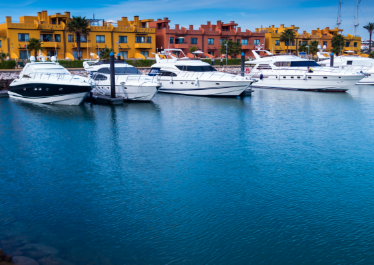Certification Bodies in the Professional Marine Market

Certification bodies play a key role in ensuring equipment and vessels' safety and regulatory compliance in the professional marine sector. They ensure that products used on board ships meet international performance, safety, and environmental standards. These certifications are essential to minimize operational risks and provide optimal maritime infrastructure protection.
What is a certification body?
A certification body is an entity that evaluates and certifies the conformity of products or systems against pre-defined standards. In the professional marine sector, these bodies focus on several aspects: the safety of passengers and crew, the protection of the marine environment, and the performance of equipment used on board ships.
The role of certifications in the professional marine
Maritime certifications cover a wide range of fields, including:
In a strictly regulated sector, uncertified products can represent a significant risk in terms of safety and operations.
Maritime certifications cover a wide range of areas, including:
- Resistance to extreme conditions (vibration, humidity, high temperatures).
- Electromagnetic compatibility and non-interference with navigation systems.
- Protection against fire and explosion.
- Energy efficiency and reduction of pollutant emissions.
In a highly regulated industry, non-certified products can pose a significant safety and operational risk.
The main certification bodies in the maritime sector
Several certification bodies have established themselves in the professional marine industry. Here is an overview of some of the most recognized:
DNV GL
DNV GL is one of the world leaders in marine certification. Due to the merger of Det Norske Veritas (DNV) and Germanischer Lloyd (GL), this organization offers certification for various technical and environmental aspects of ships.
Regarding equipment, DNV GL certification guarantees its resistance to severe conditions such as shock, vibration, and temperature variations. This certification is particularly sought-after for equipment used in demanding professional environments.

RINA (Registro Italiano Navale)
RINA is Italy's maritime certification body. Founded in 1861, it offers ship classification, product certification, and inspection services to ensure compliance with international regulations.
RINA is renowned for its ship safety and environmental preservation certifications and is particularly active in the commercial and pleasure boat sectors.
Lloyd's Register
Lloyd's Register, based in the UK, is one of the oldest and most respected classification and certification bodies in the maritime sector. It classifies ships and equipment, ensuring safety and performance standards are met.
Lloyd's Register focuses on the safety and reliability of equipment for:
- large commercial ships,
- cruise ships,
- and offshore platforms.
Bureau Veritas
Present in over 140 countries, Bureau Veritas is a key player in maritime certification. It offers services that cover ship classification, safety assessment, and marine equipment performance.
Products certified by Bureau Veritas meet rigorous safety standards, enabling them to be used in commercial and military vessels. Bureau Veritas is also an essential partner for research and development projects in the maritime sector's ecological transition.
American Bureau of Shipping (ABS)
The American Bureau of Shipping (ABS) is another renowned organization that offers certifications for ships, oil rigs, and offshore equipment. ABS focuses on technological innovation and improved performance in extreme environments.
Its standards are recognized worldwide, and mainly apply to large vessels such as container ships and oil tankers.
Standards and certificates specific to the professional marine sector
In addition to certification bodies, several standards apply to equipment and systems onboard professional vessels.
ISO standards
ISO standards are ubiquitous in the professional marine sector. They ensure that equipment meets rigorous quality and safety criteria.
For example, the ISO 8846 standard ensures that electrical components do not cause sparks in marine environments, a critical requirement to avoid onboard fires.
Environmental certifications
With the emphasis on reducing pollutant emissions, several environmental standards play a central role in designing and certifying marine equipment.
For example, propulsion and energy management systems must meet strict energy efficiency criteria verified by bodies such as Lloyd's Register or KR (Korean Register).
The importance of certification for marine equipment manufacturers
International certifications guarantee quality and reliability for marine equipment manufacturers like Dolphin Charger. These certifications enable them to position themselves as privileged partners of the major players in the marine sector, from shipbuilders to fleet operators.
Certifications such as the DNV GL certification of the PRO HD+ series provide manufacturers with essential validation of the robustness and efficiency of their products in the harshest environments. This means they can withstand extreme temperatures, intense vibrations, and corrosive marine environments.
In the demanding professional marine market, certification bodies are decisive in ensuring marine equipment's conformity, safety, and durability.
Working with certified products, such as those from Dolphin Charger, guarantees reliability and compliance with environmental and safety standards. Certification is necessary for companies in the sector, enabling them to differentiate themselves and ensure safe, sustainable solutions.
Do you have a demanding marine project? Contact our Dolphin Charger experts to learn about our DNV GL-certified solutions that are much more tailored to your most challenging professional marine needs.


